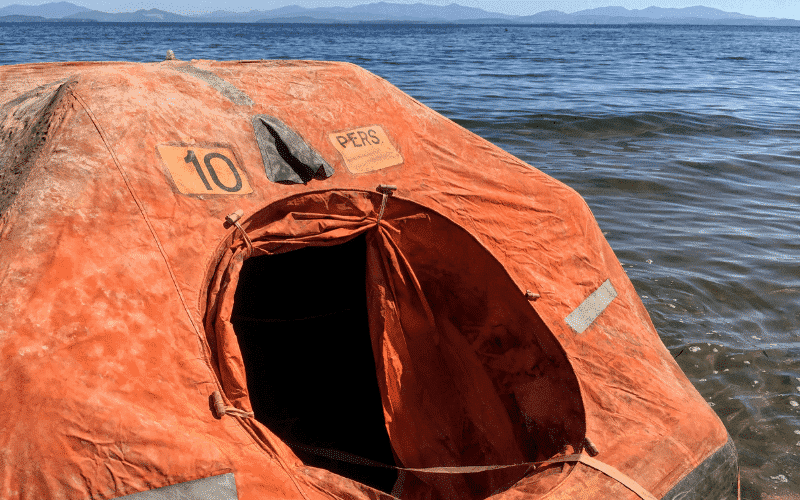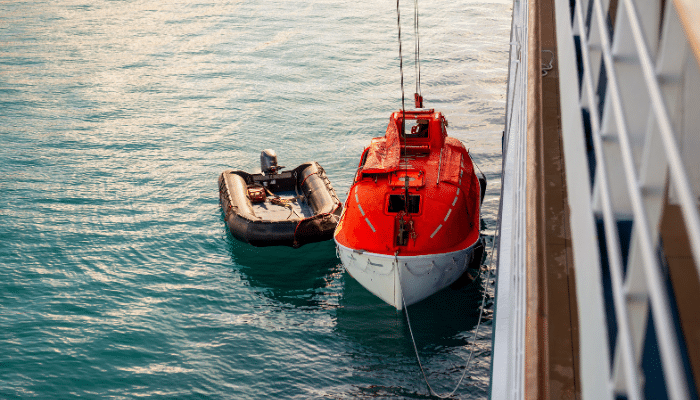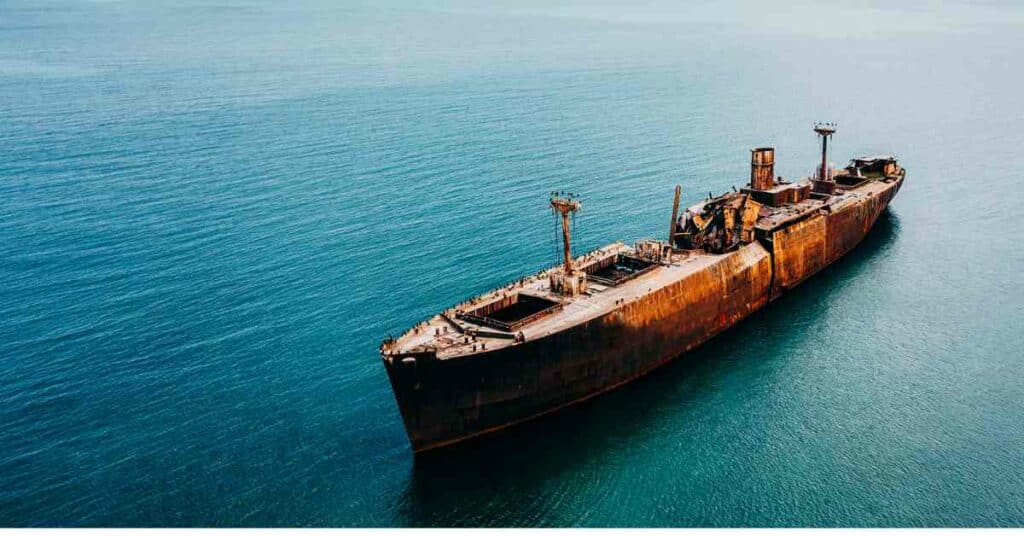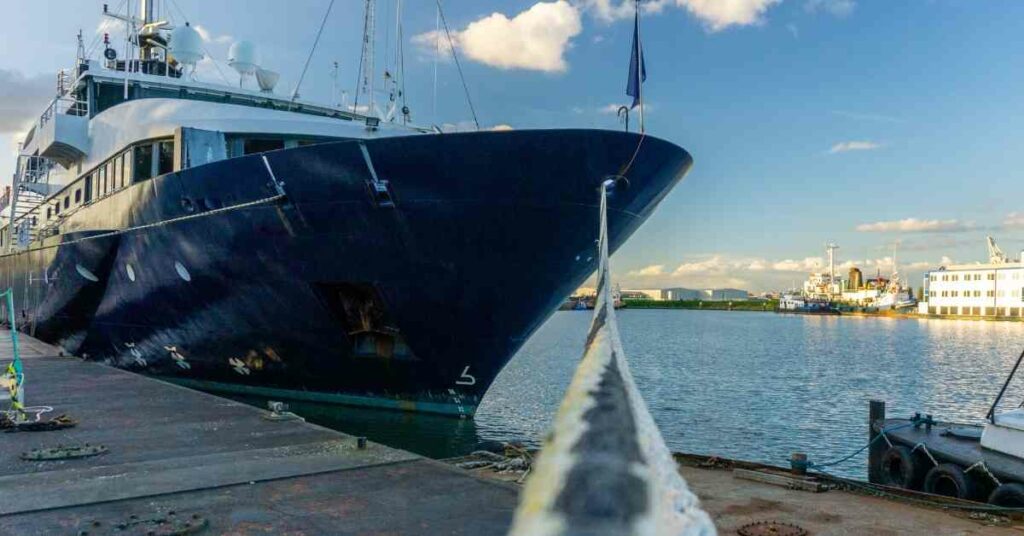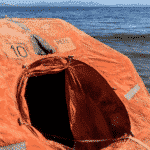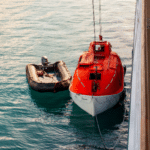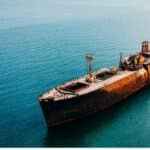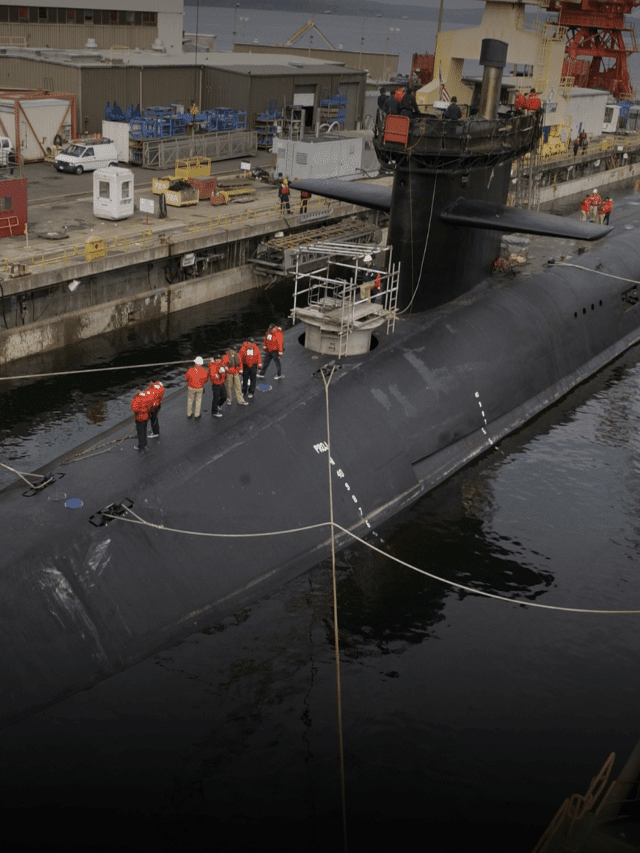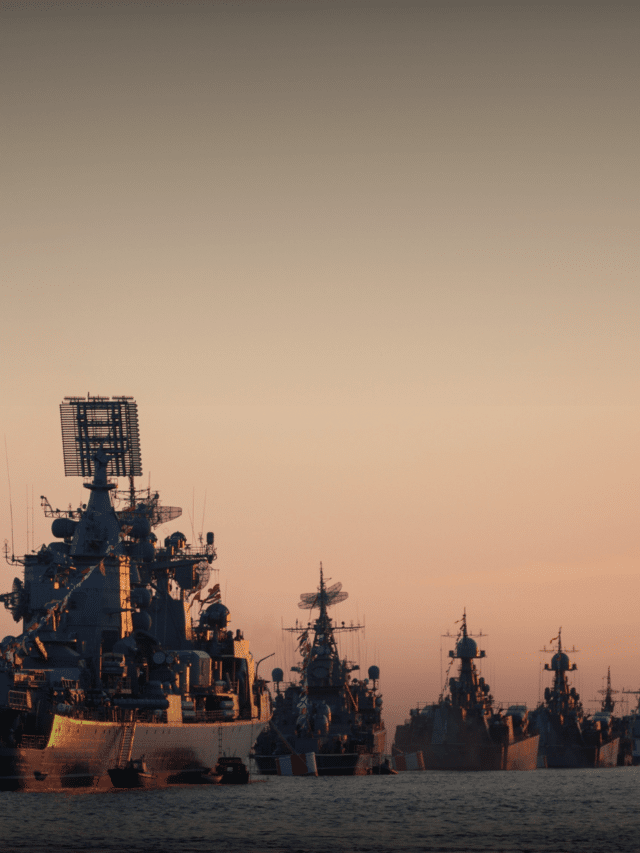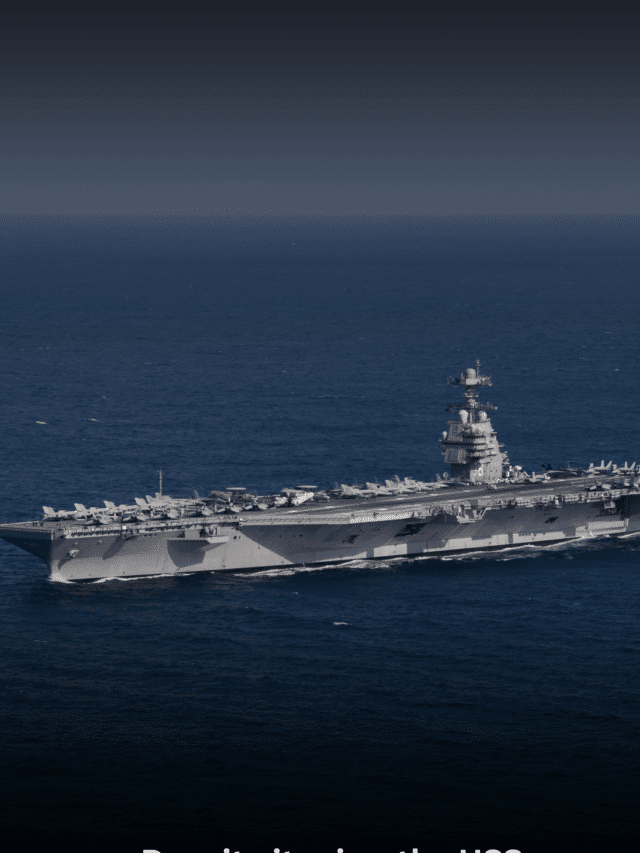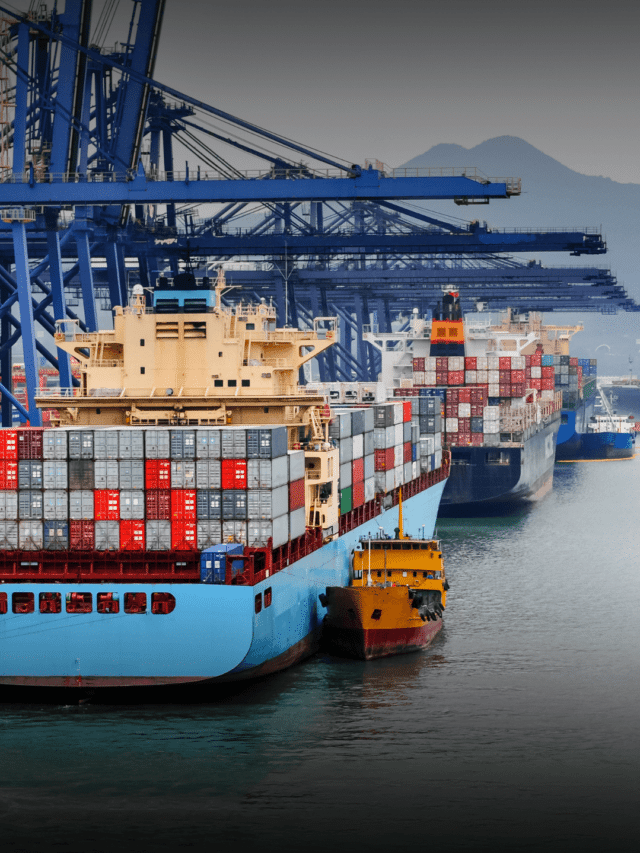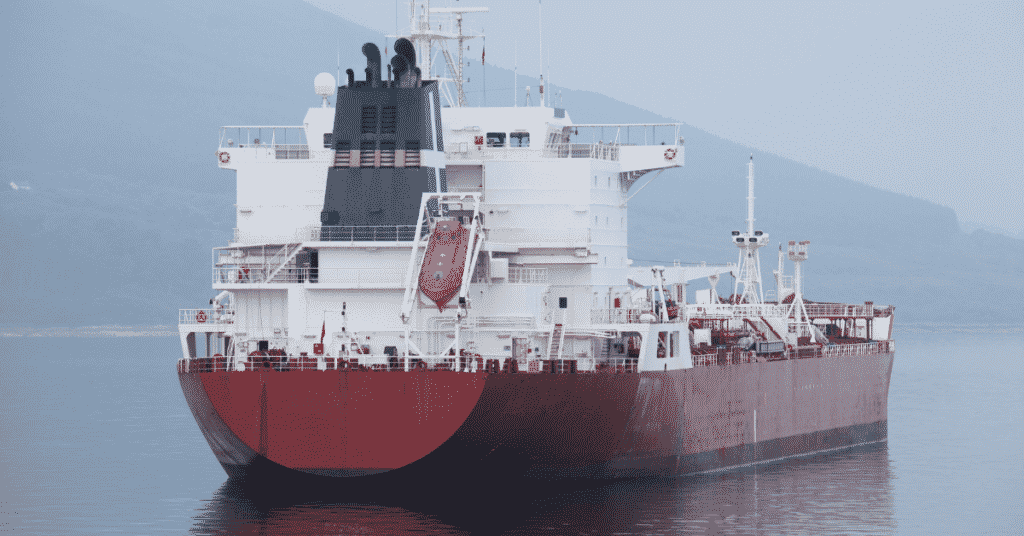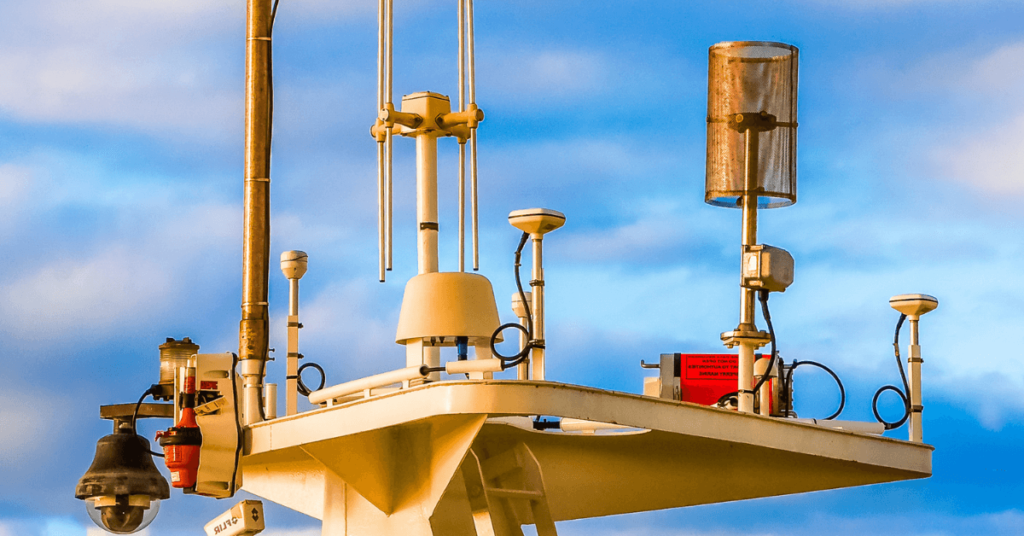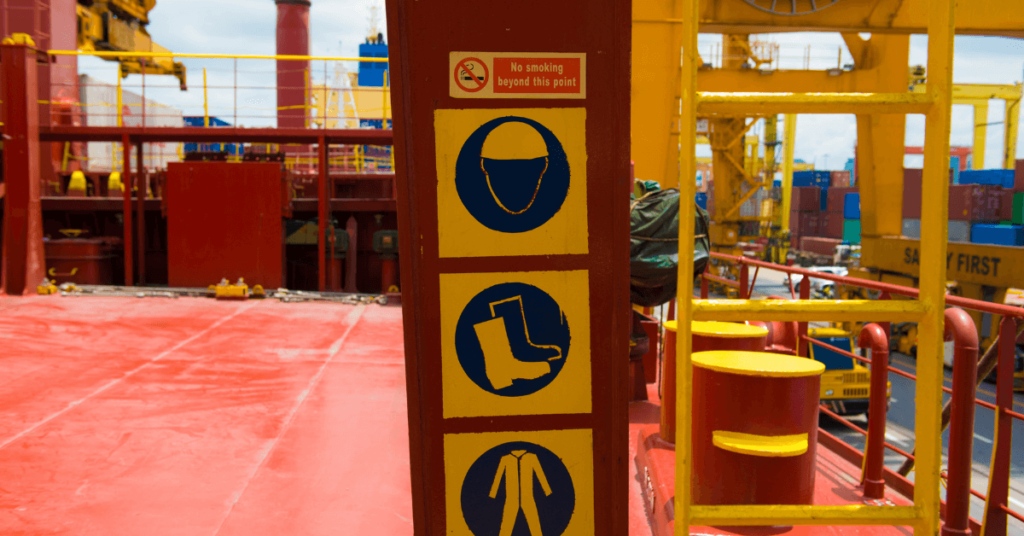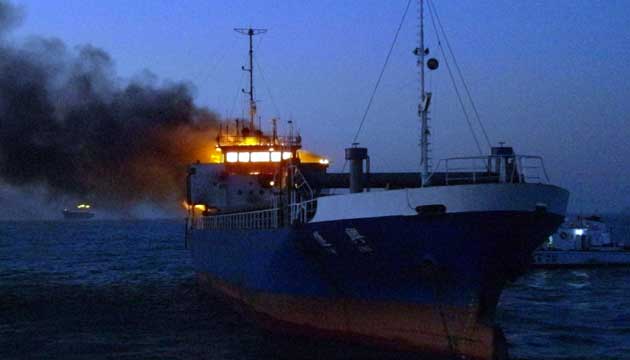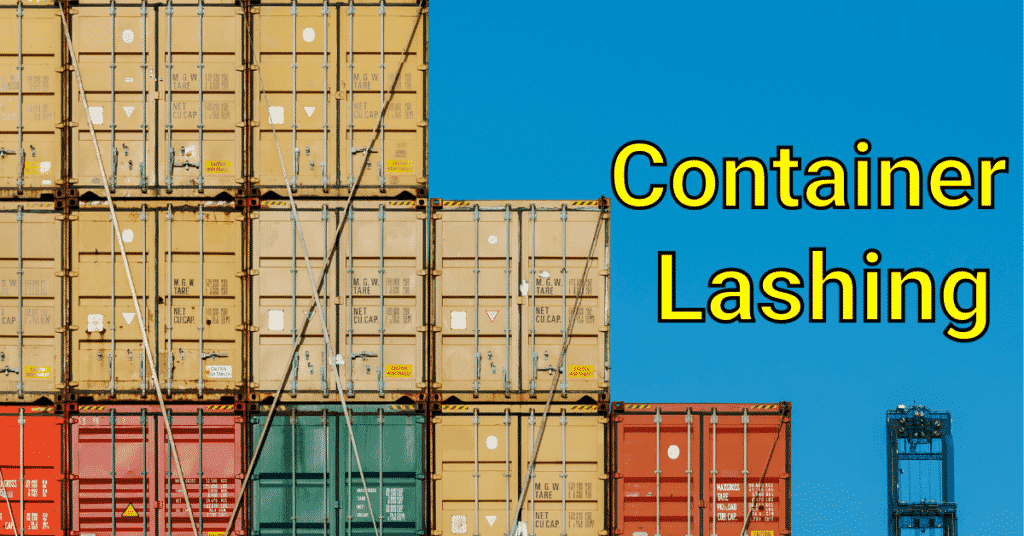Stowaways On Ships – Classification And Measures To Prevent
Wikipedia defines a stowaway as a person who secretly boards a vehicle, such as a ship, an aircraft, a train, a cargo truck or a bus, to travel without paying and without being detected.
According to the convention for Facilitation of International Maritime Traffic, a stowaway on a ship is someone who boards the vessel without the consent of the shipowner, the master or any other responsible person and is found after the ship has left the port of call or during the unloading process at the port of arrival.
Ship captains and crew should be alert when operating in high-risk areas to prevent stowaways from getting access to the ship.
On a vessel, a stowaway might hide in the cargo holds, engine room, containers etc., to prevent others from identifying him. However, if found, the captain must search his belongings for any documents to know his identity and nationality.
Individuals stow away on ships for a variety of reasons, but mainly, they do so for the following reasons:
- To leave a region of conflict (for example, the current exodus from a lot of conflict-ridden countries)
- Social or economic deprivation (leaving a developing country to find more opportunities in a more prosperous country)
- Stability, opportunity, and better quality of life (related to the point above)
It is known that the likelihood of a stowaway managing to get themself onboard is higher in the case of a poor/less developed country than in a developed one. Whatever intention it is done with, it is a problem that has to be dealt with by the shipboard staff very tactfully, considering the illegality of the situation, the legal battles that may ensue and the human rights angle of the stowaway involved.
Stowaways pose a problem for the shipping industry, particularly those trading off the coasts of South Africa, South America, Central America, Venezuela, Colombia and the Dominican Republic. Apart from vessel trade patterns, the global concern over stowaways is connected to the ships and cargo type, security training and awareness among crew members.
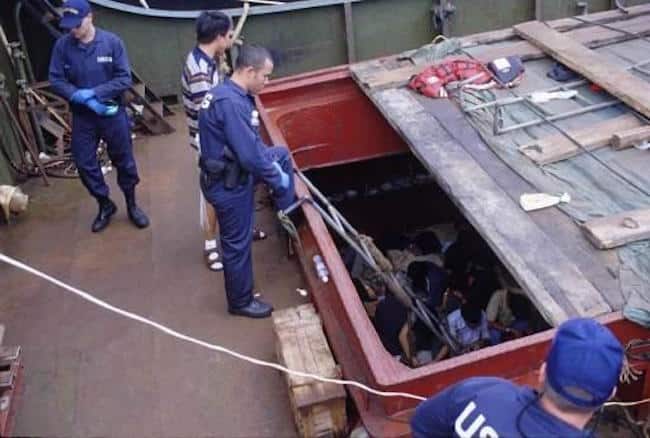
Classification of Stowaways
Stowaways can be classified under the following categories:
Refugees
A refugee is a person forced to escape their country of domicile, attempting the escape for reasons of war, civil unrest or religious persecution. The term forced is used because, in this case, they have no choice or a terrible choice for fear of their life or the state of the country. Refugees leave their homeland expecting a better life in the other country. Recently, there has been a mass exodus of people from certain countries who fear persecution and hence try to make their way out of the country any which way and under dire circumstances.
Economic Migrants
This category may consist of people who wish to leave their country of domicile for the sole purpose of leading a life of higher quality in another country. For example, it is seen in many developed countries that a lot of daily workers originally belong to another nation.
Asylum Seekers
This is the case where an individual seeks asylum in a country without the hovering fear of repatriation. The idea is to avoid persecution in their home country, which they may be trying to avoid because of political reasons such as an unwanted uprising against the Government or something along those lines.
Illegal Immigrants
Illegal immigrants want to forcibly make their way into another country without being conspicuous to border control and immigration authorities for reasons that might be undefined per se. It could range from any of the above. The idea here is that the stowaway has chosen to enter the country without adhering to the proper channels of entry into a country, undetected. Stowaways are usually treated as illegal immigrants at the port of disembarkation by the legislation of the countries involved. However, stowaways who request asylum should be treated by the relevant UN Conventions.
Criminals
This is the worst case and the most worrying of all because the person might have chosen to be a stowaway for engaging in unlawful activities. They could be involved with the transportation of drugs or other such illegal activities. These stowaways might be in groups and pose a threat to the ship’s crew, sometimes seeking to make a profit through obscene demands.
P& I Club Cover for Stowaways
P&I Clubs provide insurance cover for ship operators for any loss and liabilities about stowaways. Mostly, costs are covered by the Club (sometimes aside from those involving the divers on expenses; varies in the clauses depending on the Club policies).
There is also a clause stating that the insurance claim may be reduced or nullified if the Club has deemed that adequate steps were not taken to protect the ship against stowaways. As shipowners, as well as other ship staff, will be aware, the costs of disembarkation and repatriation of stowaways onboard their vessels have to be incurred by the shipowner/operator. The costs involved in such a case may be the following:
- Fines relating to stowaways onboard
- Victualling expenses (Cost of food and other stores for the stowaway)
- Costs of guards employed to prevent stowaway from escaping
- Clothing, linen and beddings for the stowaway
- Embassy fees
- Detention expenses
- Flights, accommodation and other repatriation costs for stowaway
- Expenses incurred by agents associated with stowaways
These costs may generally be covered by the Club, or the insurance claim may be reduced or nullified if it has been deemed by the Club that adequate steps were not taken to protect the ship against stowaways. The above points are also known to stowaways; hence, they try to board vessels for apparent reasons of comfort. Even if they don’t make it to the country they are trying to go to. Evidently, they are well taken care of!
Diversion Expenses
The P&I Club covers these costs, and it is known to the ship owner if this shall be entertained and protected by the Club. In any case, if the vessel has to be diverted to land, the appropriate authorities must be contacted beforehand to confirm whether the diversion is reasonable. The contract of carriage of cargo might be in violation due to the diversion and myriad legalities, which is why prior consent and permission must be taken from the appropriate Authorities. It may be necessary for members to arrange additional Ship owner’s Liability (SOL) insurance cover to ensure that their side is covered and protected in case of a breach of the contract of carriage.
Checklists and Questionnaires
Questionnaires about stowaways must be placed onboard (filed) in case an interrogation has to be carried out in the event of discovering a stowaway onboard. The checklists are kept in place as guidance to the Master to ensure that the best possible action is taken to avoid the entry of stowaways altogether. These might be made available in a variety of languages and can be sent to the appropriate Authorities in case a stowaway situation arises. The questionnaires are designed with the help of ARM International in Durban from years of experience and case studies.
Summary of Responsibilities under the IMO Guidelines
Shipowners and Masters have specific duties under IMO Guidelines on the Allocation of Responsibilities to Seek the Successful Resolution of Stowaway Cases. They are summarised below:
- Determine the port of embarkation of the stowaway
- Establish the identity and nationality of the stowaway
- Prepare a statement with all the relevant information about stowaway for the appropriate Authorities
- Notify the existence of the stowaway and related details to the ship owner, appropriate Authorities, port of embarkation, port of call and Flag State
- DO NOT depart from a planned voyage to seek disembarkation of the stowaway to any country unless repatriation has been arranged and permitted, unless there are security and humanitarian reasons, such as injury or illness.
- Handover stowaway to the appropriate Authorities at the next port of call
- Ensure the health, security, welfare and safety of the stowaway until disembarkation
Shipowner/operator Responsibilities
- Inform appropriate Authorities with all info about the stowaway at the port of call and port of embarkation and Flag State
- Comply with any removal directions made by the Authorities at the port of embarkation
Onboard Measures
Security
Any violent behaviour from the side of the stowaway must be considered. In this case, the crew’s safety must be taken into account; the crew must take full security precautions in this regard (for example, locking their cabin doors and not partake in unnecessary instigation of the stowaway by staying aloof, apolitical etc.). A thorough search of the stowaway must be carried out for any sharp objects or objects that may cause harm.
In this sense, the search should be strict and not violate the stowaway against their wishes, along the lines of airport authorities! The stowaway must be kept at a secure location such as a cabin or store room to reduce the risk of escape, thus inviting more legal headaches in an attempt to jump overboard. The more the number of stowaways, the more hectic this is. Extra precaution must be taken when approaching the port of call when these stowaways might try to jump overboard, therefore, incurring fines (on the side of the vessel) from the Authorities.
Health and Welfare
The mental and physical health of the stowaway must be monitored. The risk of infectious diseases must be taken into account. Keep the stowaway to their quarters and keep contact with the crew to the bare minimum, essential to survival, separating all crockeries and beddings (etc.) used by the stowaways. Condition and treatment, if administered, must be recorded.
Work
While the anger and resentment from having a stowaway onboard might tempt the ship personnel to put him to work, this should be avoided. This is to prevent any suspicion from the port authorities as to how the stowaway gained access, prevent claims of wages and, in general, keep the stowaway content till he is not a responsibility of the ship owner anymore!
The whole stowaway situation is dicey and, as mentioned, must be handled tactfully to avoid any unnecessary costs, legal trouble, and associated expenses.
Frequently Asked Questions On Stowaways
1. What are stowaways on a ship?
According to the FAL Convention, a stowaway is someone who boarded the vessel secretly without the consent of the shipowner or the Master or any other responsible person and who is found on the ship after it has departed from the port of call or during the unloading process at the port of arrival.
2. Why being a stowaway is illegal?
Stowaways might be fined or imprisoned since it is illegal to embark secretly on a plane, boat, or ship. Airports, sea ports and train stations are “non-trespassing” or “private property” zones to people except customers and employees.
3. Why do people become stowaways?
Usually, people become stowaways due to the circumstances in their lives. A person might hide on a ship to get to another country without paying the fare. There are criminals as well who use this way to escape punishment. Then, there are also refugees who flee a nation to avoid persecution.
4. What do ships do with stowaways?
If any stowaways are found on the vessel, they are usually kept in a secure cabin and guarded for the safety of the crew and passengers. However, they must be provided with adequate food and water and treated properly. They must be searched for their identification documents.
5. How can ships avoid stowaways?
Store rooms, equipment lockers and the engine room, along with other important areas, should be checked periodically to prevent someone from hiding there. Also, engine rooms or cargo storage areas must be accessible to authorised personnel only. Also, a gangway watch is important to prevent stowaways, smugglers and thieves from boarding the ship.
You might also like to read-
- Stowaway: A Menace to the Shipping Industry
- Real Life Incident: Stowaways Behind False Panel In Container
- IMO guidelines for the unwanted person onboard-Stowaway
- 23 Points Guide For Merchant Ships To Rescue Migrants At Sea
- Should Ships Help Migrants At Sea? – A Captain’s Perspective
Reference: Maritime Legislation & Shipboard Management for Deck Officers by Capt. Naik and Capt. Dubey
Disclaimer: The authors’ views expressed in this article do not necessarily reflect the views of Marine Insight. Data and charts, if used, in reports have been sourced from available information and have not been authenticated by any statutory authority. The author and Marine Insight do not claim it to be accurate nor accept any responsibility for the same. The views constitute only the opinions and do not constitute any guidelines or recommendations on any course of action to be followed by the reader.
The article or images cannot be reproduced, copied, shared or used in any form without the permission of the author and Marine Insight.
Latest Ship Safety Articles You Would Like:
Do you have info to share with us ? Suggest a correction

About Author
Shilavadra Bhattacharjee is a shipbroker with a background in commercial operations after having sailed onboard as a Third Officer. His interests primarily lie in the energy sector, books and travelling.
Subscribe To Our Newsletters
By subscribing, you agree to our Privacy Policy and may receive occasional deal communications; you can unsubscribe anytime.
Web Stories



